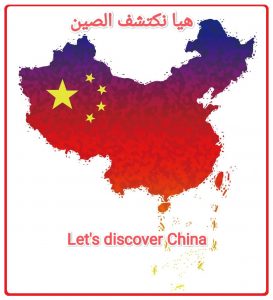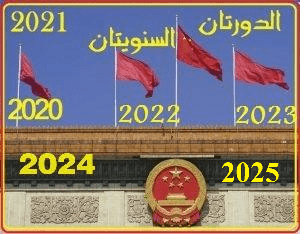Trade Wars Undermine Global Cooperation and a Shared Future for Humanity
منذ 11 شهر في 11/أبريل/2025
CSRNN/Chinese Silk Road News Network/
Trade Wars Undermine Global Cooperation and a Shared Future for Humanity
By Abdelkader KHELIL
Editor-in-chief of Chinese Silk Road News Network CSRNN
In today’s increasingly interconnected world, global cooperation is not a luxury—it is a necessity. From climate change and pandemics to economic crises, the major challenges we face transcend borders and cannot be solved by any one country alone. Strengthening multilateralism and mutual respect among nations remains the most effective path toward inclusive and sustainable development.
China has consistently positioned itself as a strong advocate of international cooperation and economic openness. Guided by the principle of “win-win” collaboration, China has launched initiatives such as the Belt and Road, Global Development, Global Security, and Global Civilization. These efforts aim to support infrastructure and development in emerging economies, promote global peace and stability, and foster mutual understanding and respect between civilizations—all in service of common global interests.
However, China continues to face systematic targeting, most recently through an escalating U.S.-led trade war. On April 7, U.S. President Donald Trump announced new tariffs on imports from China and several other countries. Although most of those tariffs were suspended days later for a 90-day period, China was the only country excluded from the exemption—leaving little doubt that these measures are specifically aimed at undermining the Chinese economy. Such moves contradict basic principles of fairness and equality in international trade.
This is not a new development. In 2018, the Trump administration launched an unprecedented trade war against China, citing trade imbalances and alleged intellectual property violations. Yet throughout, China has maintained a consistent stance: defending a fair and rules-based international trade order while rejecting unilateral policies that threaten global economic stability.
From the outset, China criticized the U.S. tariffs as incompatible with World Trade Organization rules and as a barrier to constructive dialogue. Many observers viewed these actions as attempts to contain China’s economic rise through unfair means. In response, China adopted a measured and pragmatic approach—safeguarding its national interests without abandoning its commitment to international cooperation.
Protectionist policies like these do not just hurt China—they destabilize the global economy and erode trust in multilateral trade systems. In contrast, China’s steady and balanced response, including calls for resolving disputes through the WTO and other international platforms, reflects a genuine commitment to multilateralism and global dialogue.
Despite external pressures, China’s economy has shown remarkable resilience, driven by industrial diversification and strong domestic demand. China has accelerated its shift toward innovation, investing heavily in high-tech sectors such as artificial intelligence and renewable energy—reducing reliance on traditional exports. Meanwhile, American businesses and consumers have faced higher costs and supply chain disruptions, highlighting the counterproductive nature of protectionism.
China’s Response: Firm, Measured, and Committed to Openness
As the United States ramps up economic pressure, seemingly as part of a strategy to isolate China, Beijing has repeatedly stated that it does not seek to escalate trade tensions. Nonetheless, it will firmly defend its legitimate interests through appropriate measures. The Chinese government has introduced well-calibrated countermeasures while leaving the door open for dialogue. President Xi Jinping has repeatedly stated, “There are no winners in a trade war. Cooperation is the only path to a shared future.”
China’s position remains clear and consistent: advocating for a more open, fair, and inclusive global order. It sees multilateralism and mutual respect as essential to overcoming disputes and building a peaceful, stable, and prosperous international community.














